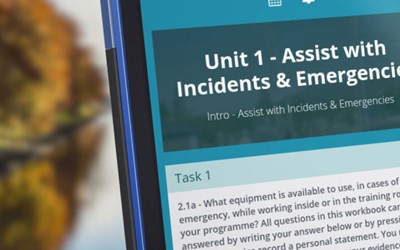Online Learning Tools Help Quench the Thirst for Knowledge
Everywhere today business leaders are looking at ways to upskill their staff, digitisation challenges and the ability to adapt are key aspects to the overall business success, and Leaders need to embrace this at speed. At eCom we have been talking to hundreds of organisations about this and if you have been along to one of our round table seminars, you’ll know we have discussed ways on how to keep a focus on your staff during this digital transformation time.
Posted 11 February 2020
Investing in knowledge exchange
Organisations are facing an abundance of technical challenges and this has led to many either relying on the equipment supplier or bringing in consultants and experts to undertake the work. One of the main concerns for leaders is that it’s not enough to just invest in the innovative technologies, there needs to be an investment in existing staff as well. One of the ways to do this is to put in place a knowledge exchange process that works alongside the transformation plan.
An automatic process?
You would think that knowledge exchange happens automatically as staff learn about the new equipment, processes or services. But you might be surprised to know that this is not the case. UK Universities have been trying for years to understand why the knowledge exchange projects they have with Industry have been unsuccessful. Some of the reasons include:
- a lack of trust between the employees and the external contractors;
- difficulties in communication with lots of jargon being used; and
- the fear of asking silly questions.
And it is for these reasons that so many employees just don’t engage with the informal process.
What is knowledge exchange really about?
It is the process where a formal plan is needed to facilitate the exchange of ideas, knowledge and skills from experienced personnel to in-company employees, so that the employees can replace the experts to carry on the process of development or work.
To create this formal plan, organisations need to be able to identify and capture critical knowledge from key personnel so it can be shared. This is not as easy as you might think, as many leaders “don’t know what they don’t know”. Therefore it’s the experienced staff who need to define the list of factual and conceptual information required.
Creating a dynamic knowledge library should be part of any knowledge exchange agreement. This might be a collection of internal documentation, links to web resources, on-line courses, marketing resources and any promotion videos. Organisations need to be able to clearly define the goal of the knowledge exchange and identify where the gaps exist.
When leaders don’t define the scope, there is no basis for clearly identifying gaps and this is one of the main issues that prevents good knowledge exchange from happening. As a result, employees end up going around in circles trying to find out the information when it’s too late and the experts are no longer present. So you might want to write down a plan of what goals you want to achieve, “what is written down gets measured”.
One of the key ways to impart knowledge, skills and ideas is through dialogue, collaboration, feedback and coaching. Leaders need to provide a space and place for sharing to take place and in some cases, this needs to be a long term strategy rather than just as simple intervention. When an organisation demographic means that they have a large amount of older experienced staff who may retire at the same time, then knowledge exchange needs to become part of the normal business activities.
How online learning helps
Social online learning tools are great spaces for sharing, with integration to chat/communication systems, project problem-solving wikis, tasks list and innovation idea spaces. eCom’s systems integrate with Microsoft Teams and Slack who are major players in this space.
Being online helps employees reduce their fear since they don’t need to have discussions with experts on a face-to-face basis. It also allows a wealth of information/resources to be collated for future use, all of which will be resources are searchable. Sharing lessons learned and problem/project solving ideas are a great way to start the dialogue as these are clearly defined areas for improvement that current employees can engage with.
Recent Posts
Level up your event management with eNetLearnWhite-labelling: The secret to training learners actually trust
Turning AI into potential gain
Seamless HR Integration: Streamlining workforce enrolment with eCom's eNet Product Suite
eCom Learning Solutions: Staying ahead in a constantly evolving landscape


